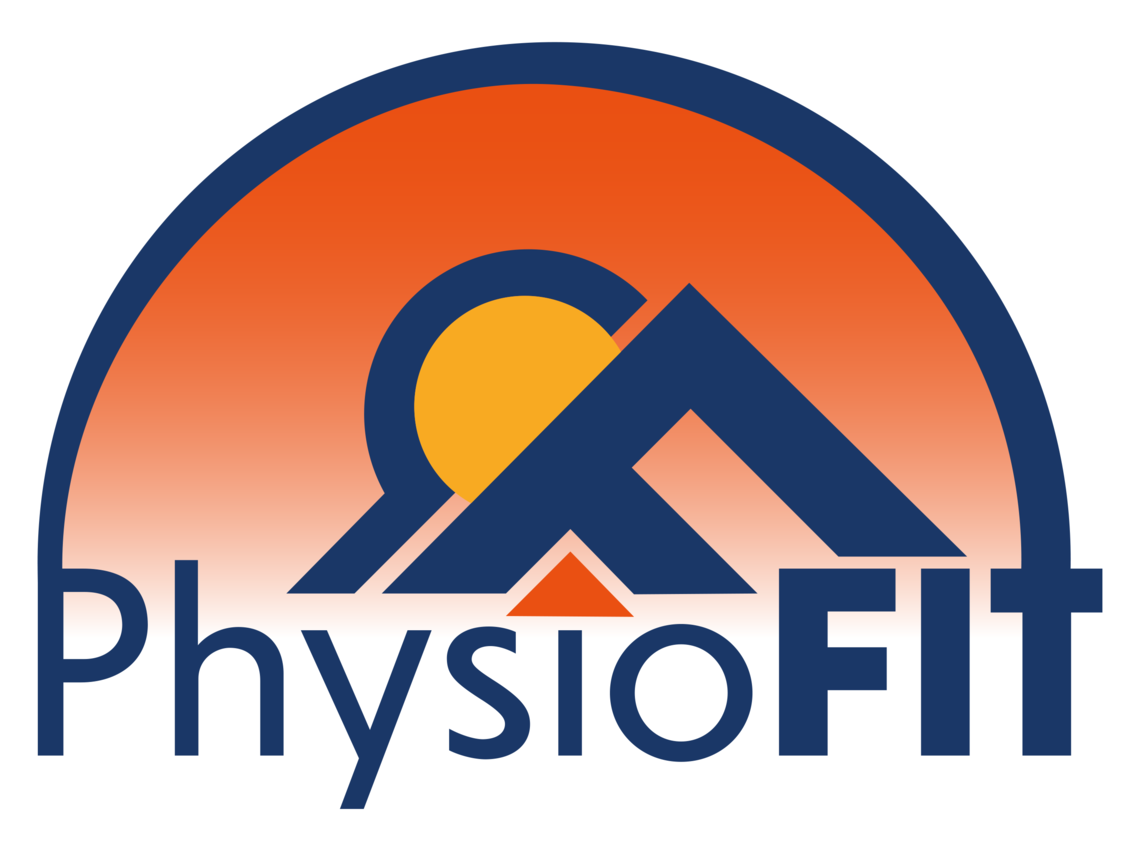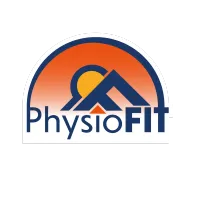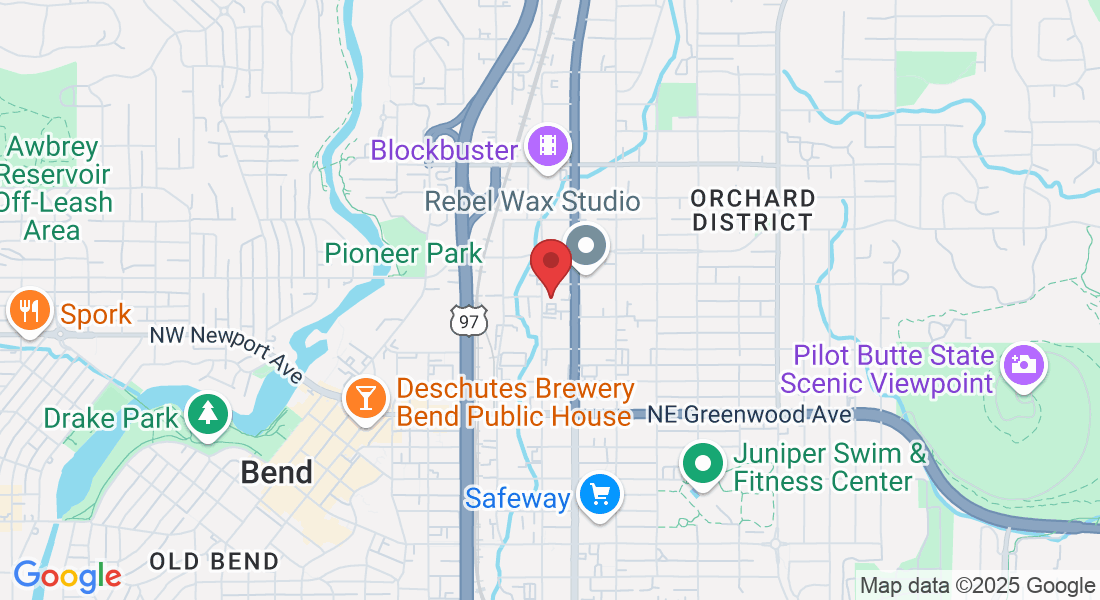TMJ Relief
Unlock Relief From TMJ Pain
If you're struggling with discomfort and dysfunction in your jaw, you've come to the right place. Temporomandibular joint (TMJ) disorders, or TMD, as they are also known, can severely impact the quality of your life, leading to significant jaw pain, headaches, and hindrances in performing simple tasks like opening and closing your mouth. By diving deeper into understanding the complexities of TMJ disorders, we're equipped to provide innovative and tailored physical therapy solutions for effective TMJ pain relief.
Experience TMJ Relief like Never Before with PhysioFit: We take a deeply personalized approach to your health, comprehending that every TMJ pain sufferer requires a unique treatment plan. Leveraging the power of evidence-based, fitness-driven physical therapy in bend, we strive to offer more than temporary relief. We aspire to improve your overall well-being, stave off persistent pain and accelorate your recovery process, allowing you to effortlessly resume your normal life.
What You Should Know
Healthcare providers classify TMDs into three categories:
Disorders of Your Jaw Joints: These involve complications in the jaw joints themselves, often manifesting as clicking, popping, or grating sounds during jaw movement.
Disorders of Your Chewing Muscles: This category includes issues related to the muscles responsible for chewing, where patients may experience persistent or intermittent muscle pain.
Headaches That Result From TMD: A significant fraction of TMD sufferers may experience headaches or migraines as a consequence of jaw joint or muscle dysfunction, significantly affecting their quality of life.
A proper diagnosis of a TMJ or TMD problem involves a thorough evaluation from a professional.

Some of The Most Common Causes of TMJ Pain
The onset of TMD isn't attributed to one solitary cause. Instead, it tends to emerge from a diverse array of factors, often in combination.
Jaw injury: Injuries such as a broken or dislocated jaw can directly affect the temporomandibular joint, leading to TMJ disorders. Such physical trauma can disrupt the alignment and smooth functioning of the jaw joint, inducing pain and discomfort.
Teeth Grinding or Clenching (bruxism): Frequent teeth grinding or clenching, often a subconscious habit during sleep or periods of stress, can exert excessive pressure on the TMJ, contributing to its dysfunction. Over time, this can lead to wear and tear, causing persistent pain and other TMJ-related symptoms.
Arthritis in Your Jaw Joint: Arthritis, an inflammatory condition, can affect any joint in your body, including the TMJ. The inflammation and degeneration associated with arthritis can cause joint pain and stiffness, impairing normal jaw movement.
Malocclusion: Malocclusion refers to the misalignment of teeth when the jaws are closed, which can put additional strain on the TMJ. This imbalance can force the jaw joint to work harder to achieve efficient biting and chewing, increasing the risk of TMJ disorders.
Stress: High levels of stress can lead to physical manifestations such as increased muscle tension or clenching of teeth, both of which can place undue strain on the TMJ. Chronic stress can exacerbate these physical responses, thereby contributing to TMJ pain and dysfunction over time.
If any of this information resonates with your current situation, we urge you to schedule an appointment with us immediately. Don't let hip pain diminish your life quality - allow us to help you embark on the path to relief today.
Can I Prevent TMD or TMJ Pain?
While it's true that certain risk factors contributing to TMJ dysfunction are beyond our control, there are still practical steps you can take to minimize the likelihood of developing this condition:
Make Use of a Mouth Guard During Sleep: Nighttime teeth clenching or grinding, known as bruxism, can significantly contribute to TMJ dysfunction. By wearing a mouth guard as you sleep, you can effectively mitigate this risk, protecting your jaw joints from undue pressure.
Ensure You're Protected in High-Risk Situations: When participating in contact sports, your facial area is more susceptible to injuries. Utilizing a mouth guard during such activities can offer invaluable protection for your jaw, reducing the risk of TMD.
Prioritize Maintaining Good Posture: The alignment of your neck and head plays a vital role in the functioning of your jaw. By ensuring good posture, you can maintain optimal alignment, thereby reducing strain on your TMJ.
Embrace Stress Reduction Practices: Stress can lead to unconscious habits such as jaw clenching, which can exacerbate or lead to TMD. Techniques such as meditation or mindfulness exercises can help manage your stress levels, offering indirect yet essential protection against TMJ dysfunction.
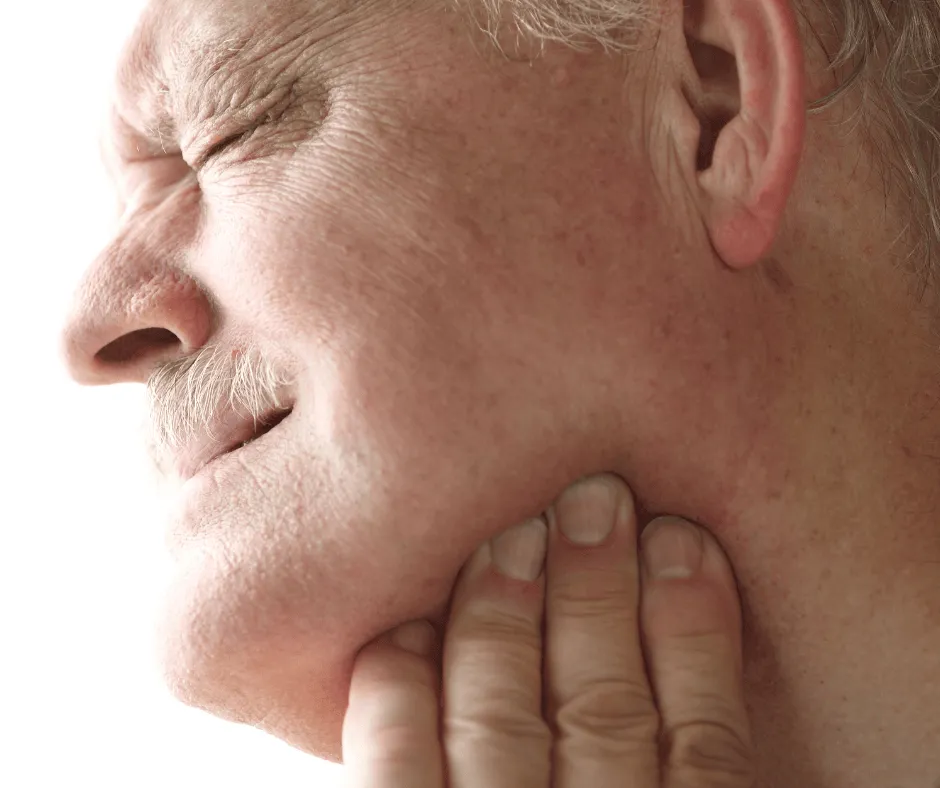
Common Symptoms of TMJ Pain
Jaw Tightening or Stiffness
Jaw Pain
Jaw Clicking or Popping
Trouble Closing or Opening Your Mouth.
Headaches or Migraines
Earaches or Toothaches
Ringing in Your Ears (tinnitus)
Teeth Fitting Together Differently (malocclusion)
Remember, if you resonate with any of the symptoms or conditions mentioned, we highly recommend making an appointment with us for a thorough evaluation and personalized treatment plan.
Please Note: The information provided on our website is intended for general education and is not a substitute for professional medical advice. Each individual's situation and body is different. Therefore, what may work for one person may not work for another. We care about your well-being and advise you to reach out to us to discuss your specific needs before implementing any advice from our website.
Your Source for All Things Physical Therapy in Bend Oregon
The PhysioBlog
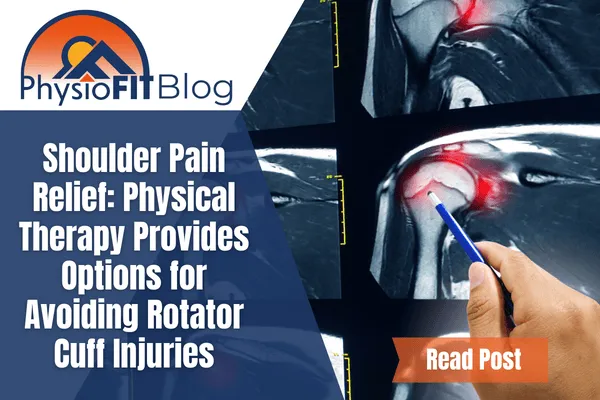
Shoulder Pain Relief: Physical Therapy Provides Options for Avoiding Rotator Cuff Injuries
Understanding Shoulder Pain and Rotator Cuff Injuries
Please Note: The information provided on our website is intended for general education and is not a substitute for professional medical advice. Each individual's situation and body are different. Therefore, what may work for one person may not work for another. We care about your well-being and advise you to reach out to us to discuss your specific needs before implementing any advice from our website.
Introduction
Shoulder pain is a common complaint that can stem from various causes, one of the most prevalent being rotator cuff injuries. These injuries can significantly impact a person's quality of life, making daily tasks challenging and limiting physical activities. In Bend Oregon, the PhysioFIT physical therapy clinic is dedicated to helping individuals manage shoulder pain and prevent rotator cuff injuries through our “fitness-centric” physical therapy approach.
Understanding Shoulder Pain
Shoulder pain can arise from various conditions, including arthritis, bursitis, and tendonitis. However, one of the most common sources of shoulder pain is overuse or some trauma leading to a rotator cuff injury. The rotator cuff is a group of muscles that stabilize the shoulder joint by maintaining proper congruence and motion between the scapula and humerus. When these tissues are damaged, it can result in severe pain, weakness, and limited mobility.
According to Healthline, shoulder pain affects millions of Americans each year, with rotator cuff injuries accounting for a significant portion of these cases. These injuries can severely impact an individual's ability to perform daily activities and maintain an active lifestyle.

What are Rotator Cuff Injuries?
Rotator cuff injuries typically involve damage to the tendons, which can occur due to acute trauma, such as a fall, or chronic wear and tear, often resulting from repetitive overhead motions.
According to the Mayo Clinic, rotator cuff injuries are common and increase with age. These injuries can cause a dull ache in the shoulder, disturb sleep, and make it difficult to perform activities that involve lifting the arm.
At PhysioFIT, we frequently treat patients with rotator cuff injuries providing pain relief as soon as possible. Our team of physical therapists uses a variety of techniques to alleviate pain, improve mobility, and strengthen the shoulder muscles to prevent further injury.
The Role of Physical Therapy in Shoulder Health
Physical therapy plays a crucial role in managing shoulder pain and preventing rotator cuff injuries. Physical therapists can provide personalized treatment plans that include pain management strategies, strengthening exercises, and education on how to avoid or improve the mechanics of movements that are associated with injury. It’s important to get a proper evaluation from a professional, so as not to further aggravate any potential injury that may be present.
At PhysioFIT, our physical therapists are experts in shoulder health and we don't want to prevent you from enjoying all that Central Oregon has to offer any longer than you have to. So we work closely with our patients to understand their specific needs and goals, and we develop customized treatment plans that aim to alleviate pain, improve function, and prevent future injuries. Our approach to treatment is holistic with a "fitness-centric" approach, considering the overall health and well-being of our patients in addition to their shoulder health.
Through physical therapy, individuals suffering from shoulder pain can gain relief and learn strategies to prevent future injuries. At our physical therapy clinic we are committed to helping our patients achieve optimal shoulder health and an improved quality of life. We won’t just mask the symptoms or put you through the motions, we want you back in action as soon as possible, equipt with the tools to prevent further injuries in the future.
Shoulder Pain and Rotator Cuff Injury Prevention
Prevalence of Rotator Cuff Injuries
Rotator cuff injuries are a common cause of shoulder pain and disability among adults. In fact, almost 2 million people in the United States visit their doctors each year due to rotator cuff injuries. These injuries can significantly weaken your shoulder, making many daily activities, like combing your hair or getting dressed, painful and difficult to do.
Rotator cuff injuries are more common in the dominant arm — the arm you prefer to use for most tasks. If you have a degenerative tear in one shoulder, there is a greater likelihood of a rotator cuff tear in the opposite shoulder — even if you have no pain in that shoulder.

Symptoms and Diagnosis of Rotator Cuff Injuries
The most common symptoms of a rotator cuff tear include:
Pain at rest and at night, particularly if lying on the affected shoulder
Pain when lifting and lowering your arm or with specific movements
Weakness when lifting or rotating your arm
Crepitus, or a crackling sensation, when moving your shoulder in certain positions
Tears that happen suddenly, such as from a fall, usually cause intense pain. There may be a snapping sensation and immediate weakness in your upper arm. Tears that develop slowly due to overuse may also cause pain and arm weakness. You may have pain in the shoulder when you lift your arm, or pain that moves down your arm.
To diagnose a rotator cuff injury, your doctor should discuss your symptoms and medical history, then examine your shoulder. They may also examine your neck to make sure that it is not the true source of your pain, and to rule out other conditions.
Imaging tests, such as X-rays or magnetic resonance imaging (MRI), may be used to confirm the diagnosis. An MRI can show the rotator cuff tear, as well as where the tear is located within the tendon and the size of the tear.
Treatment Options for Rotator Cuff Injuries
The goal of any treatment is to reduce pain and restore function, we can do this in a multitude of ways, including manual therapy. There are several treatment options for a rotator cuff tear, and the best option is different for every person. In planning your treatment, your doctor or health professional like a physical therapist will consider your age, your activity level, your general health, the type of tear you have, as well as functional impairments.
Nonsurgical treatment options may include rest, activity modification, nonsteroidal anti-inflammatory drugs (NSAIDs), strengthening exercises and physical therapy, and steroid injections.
Physical therapy, such as the services provided by PhysioFIT, a leading provider of physical therapy in Bend, Oregon, can be particularly beneficial. Specific exercises can restore movement and strengthen your shoulder, relieving pain and preventing further injury.
In some cases, surgery may be recommended, particularly if your pain and function does not improve with nonsurgical methods or if you are very active and use your arms for overhead work or sports.
Preventing Rotator Cuff Injuries
Preventing rotator cuff injuries involves maintaining shoulder health and strength. This can be achieved through physical therapy techniques and proper warm-up before physical activities.
Physical therapy, such as the services we provide at PhysioFIT, can help to promote function, mobility, and range of motion, reducing the risk of rotator cuff injuries. Regular shoulder exercises can improve flexibility and endurance, further reducing the risk of injury.
Conclusion
Rotator cuff injuries are a common cause of shoulder pain and can significantly impact daily life. However, with the right treatment and preventive measures, it's possible to manage the pain and prevent further injuries. Physical therapy, in particular, plays a crucial role in both treatment and prevention.
At PhysioFIT, we are committed to helping our clients optimize their shoulder health and prevent rotator cuff injuries. Our team of experienced physical therapists in Bend, Oregon, provide personalized treatment plans tailored to each individual's needs. We believe that it's easier to stay healthy than regain lost capacity post-injury, and we're here to guide you every step of the way.
Remember, it's important to not just seek medical advice or physical therapy care if you're experiencing shoulder pain or suspect a rotator cuff injury. Prevention or early treatment can prevent your symptoms from getting worse,get you back to your normal routine quicker, or even prevent the injury from occurring in the first place.
Please Note: It's important to note that any exercises that are shared should be performed under the guidance of a qualified physical therapist in bend to ensure correct technique and to prevent injuries. A physical therapist can provide a customized exercise program based on the individual's fitness level, goals, and any existing injuries or conditions. If you’d like to explore this more or would like to schedule a time with a physical therapist, contact us atPhysioFITBend.com
Copyright PhysioFIT 2025 . All rights reserved
